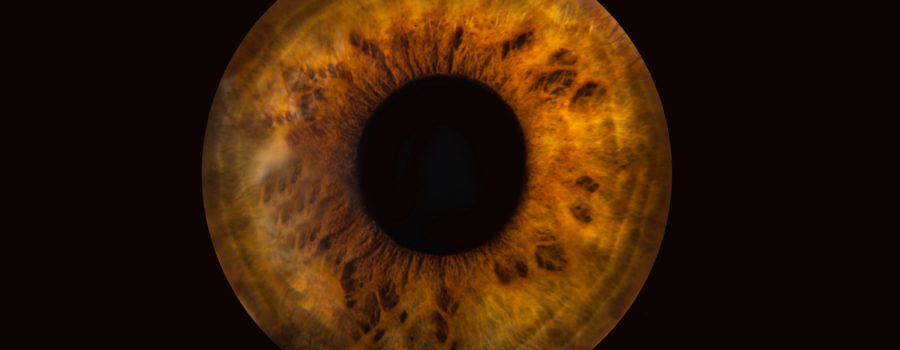What is an eye single to his glory? This particular phrase in the Stick of Joseph invites further analysis and leads to a conclusion that is not only unexpected, but is also another Hebrew idiom bullseye for the text. Consider the phrase in context:
Behold, I make an end of speaking concerning this people. I am the son of M’raman, and my father was a descendant of Nefi, and I am the same who hides up this record unto YHWH. The plates thereof are of no worth because of the mitzvah of YHWH, for he truly said that no one shall have them to get gain. But the record thereof is of great worth, and whoever shall bring it to light, him will YHWH bless. For none can have power to bring it to light except it be given him of Elohim. For Elohim will that it shall be done with an eye single to his glory, or the welfare of the ancient and long dispersed covenant people of YHWH; and blessed be him that shall bring this thing to light, for it shall be brought out of darkness unto light according to the word of Elohim. Yes, it shall be brought out of the earth, and it shall shine forth out of darkness and come unto the knowledge of the people, and it shall be done by the power of Elohim.
(M’raman 4:3)
The word “single” in this phrase “eye single to His glory” is a KJV-ism from Matthew 6:22-23:
[22] The light of the body is the eye: if therefore thine eye be single, thy whole body shall be full of light.
[23] But if thine eye be evil, thy whole body shall be full of darkness. If therefore the light that is in thee be darkness, how great is that darkness!
(Matthew 6:22-23 KJV)
Here the Greek word for “single” is ἁπλοῦς, “to be clear or focused”
David Stern writes of these verses in his “Introduction” to the Jewish New Testament:
“ … much of what is written in the New Testament is incomprehensible apart from its Jewish context. Here (Matt. 6:22-23) is an example, only one of many … in Hebrew, having an ’ayin ra’ah, an ‘evil eye,’ means being stingy; while having an ’ayin tovah, a ‘good eye,’ means being generous”
(Stern, D. (1989) Jewish New Testament: A Translation of the New Testament that Expresses its Jewishness. Jerusalem, Israel: Jerusalem New Testament Publications, p. x).
We see this same idiom used in Proverbs:
He that hath a bountiful eye shall be blessed; for he giveth of his bread to the poor.
(Proverbs 22:9 KJV)
Here the literal Hebrew behind “bountiful eye” is טֹֽוב־עַ֭יִן literally “good eye” as it is more literally translated in many other versions. This “good eye” idiom was not lost on the translators of the Greek Septuagint, which renders the phrase in Greek as Ο ελεων πτωχον “he that has pity for the poor.”
Conversely, to have an “evil/bad eye” in Proverbs:
[6] Eat thou not the bread of him that hath an evil eye, neither desire thou his dainty meats:
(Prov. 23:6 KJV)
[22] He that hasteth to be rich hath an evil eye, and considereth not that poverty shall come upon him.
(Prov. 28:22 KJV)
Unfortunately the Greek translator of Matthew saw the Hebrew phrase טֹֽוב־עַ֭יִן in the original Hebrew of Matthew and rendered it in Greek with ὁ ὀφθαλμός σου ἁπλοῦς “your eye be clear/focused” wrongly thinking that a “good eye” related to clear or focused vision rather than the quality of generosity and lack of greed.
What is very interesting is that the Stick of Joseph, while using the familiar KJV-ism for this phrase, gets the idiom exactly right! The text requires that the one who brings the record forth have “an eye single to his glory” emphasizing “The plates thereof are of no worth because of the mitzvah of YHWH, for he truly said that no one shall have them to get gain.” This usage disqualifies anyone who seeks riches or wants the record for greedy purposes. “But the record thereof is of great worth, and whoever shall bring it to light, him will YHWH bless.” Just as we read in Proverbs 22:9 “He that hath a bountiful [good] eye shall be blessed”.
Yosef ben Yosef could not have known this Hebrew idiom, which even the Greek translator of the original Hebrew Matthew did not understand, yet the idiom is used absolutely correctly in the Stick of Joseph. This is yet another evidence that the Stick of Joseph is an authentic ancient Hebrew record.



Leave a Reply